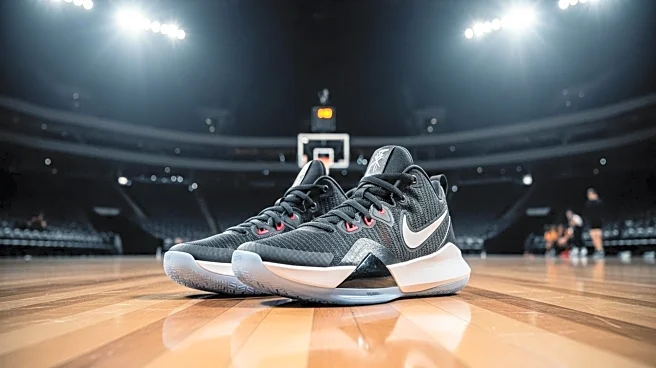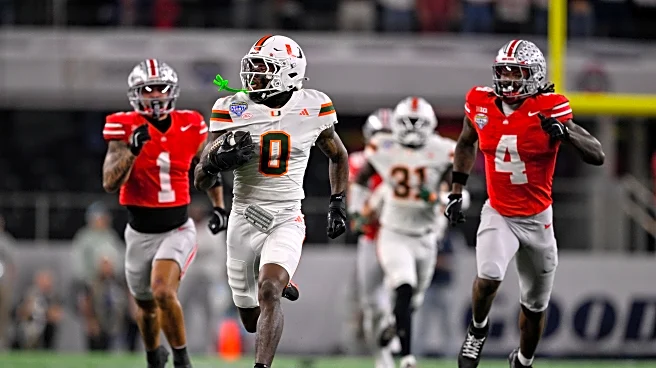What's Happening?
Nike Inc. is increasingly focusing on female basketball stars, particularly from the WNBA, to enhance its brand visibility and market presence. The company has signed several prominent WNBA players, including Sabrina Ionescu, A'ja Wilson, and Caitlin Clark, to lucrative sneaker deals. This shift comes as Nike aims to capitalize on the growing popularity of women's sports, especially basketball, under the leadership of new CEO Elliott Hill. The move is part of a broader strategy to diversify its athlete endorsements beyond the traditional male basketball legends like Kobe Bryant and LeBron James. Nike's emphasis on women's sports is seen as a significant growth opportunity, with the WNBA experiencing a surge in popularity.
Why It's Important?
Nike's strategic pivot towards female athletes in basketball reflects a broader industry trend recognizing the commercial potential of women's sports. This focus not only enhances Nike's brand image but also aligns with societal shifts towards gender equality in sports. By investing in WNBA stars, Nike is tapping into a growing market segment, potentially increasing its consumer base and sales. The move also highlights the importance of diversity in sports marketing, as it addresses criticisms of prioritizing certain demographics over others. This strategy could lead to increased visibility and support for women's sports, influencing public perception and encouraging more investment in female athletes.
What's Next?
Nike's continued investment in WNBA stars suggests a long-term commitment to women's sports. The company plans to release Caitlin Clark's signature shoe next spring, which is expected to further boost its presence in the women's basketball market. As Nike navigates this new focus, it may face challenges in maintaining momentum and ensuring sustained interest in women's sports. The success of these initiatives could influence other brands to follow suit, potentially leading to increased competition and innovation in the sports apparel industry. Stakeholders, including athletes and sports organizations, will likely monitor Nike's progress and adapt their strategies accordingly.
Beyond the Headlines
Nike's emphasis on female athletes could have broader cultural implications, promoting gender equality and challenging traditional norms in sports. This shift may inspire young female athletes and contribute to a more inclusive sports environment. Additionally, the focus on diversity in athlete endorsements could encourage other companies to reevaluate their marketing strategies, fostering a more equitable representation of athletes across genders and backgrounds. The long-term impact of these changes could reshape the sports industry, influencing how brands engage with consumers and support athletes.










